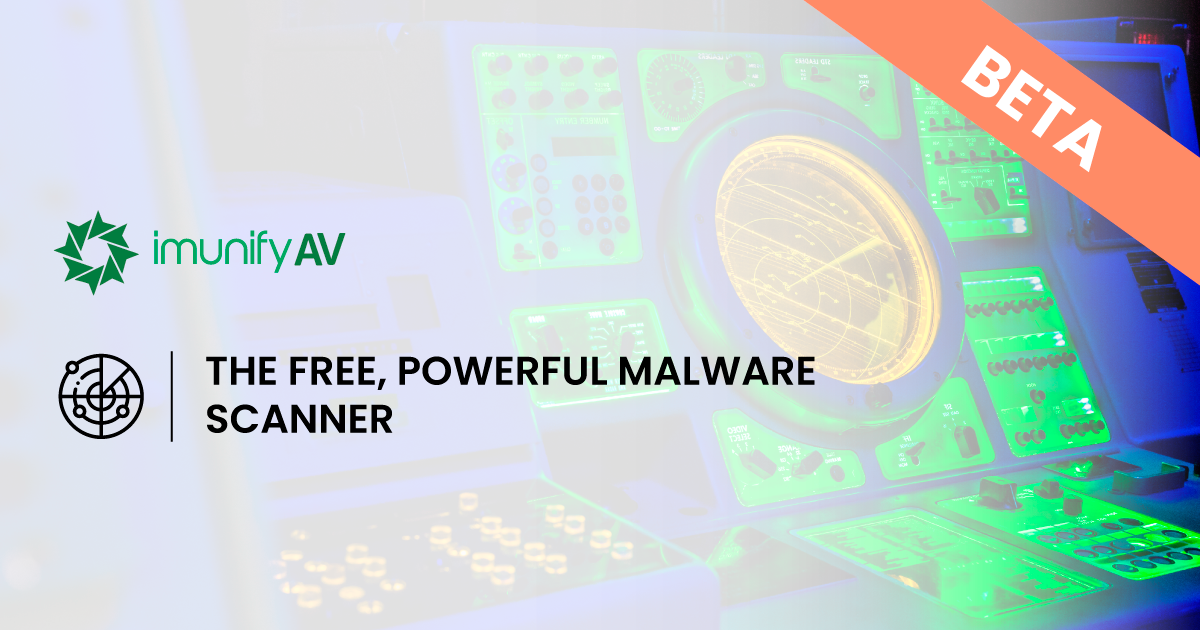Release Notes: ImunifyAV(+) v6.10 beta

We’re pleased to announce a new beta version of ImunifyAV(+). Version 6.10 is now available. Discover more features in Imunify360. The following features are new in the v6.10 beta release:
- Deal with Crontab infection once and for all
We added a way to find and root out the Crontab type of infections. - Further improving WHM Contact Manager integration
We are adding a new type of notifications through WHM Contact Manager to make sure our clients are informed about vulnerable and outdated plugins and themes they may use.
Deal with Crontab infection once and for all
Introducing a built-in mechanism to get rid of Crontab infection. After we battled a Crontab infection wave this August we made sure that not only the infection was stopped but a tool to find and root out CronJob injections was provided.
On the web server, the user’s Crontab files are notoriously tricky to maintain secure because of specific format and various placement of the files outside of users’ home directories depending on specific OS and platform, which makes them a compelling target for malicious actors. With this update, we added a feature that detects any Crontab infection among the files that are owned by users of the server for every role that has access to run the scans on that server.
The feature will be released as experimental and in version 6.10 it will be switched off by default. The setting MALWARE_SCANNING.crontabs allows you to enable or disable scan of the system and user crontab files for malicious jobs. Manage it through CLI:
To switch it on:
# imunify360-agent config update '{"MALWARE_SCANNING": {"crontabs": true}}'And to switch it off:
# imunify360-agent config update '{"MALWARE_SCANNING": {"crontabs": false}}'Further improving WHM Contact Manager integration
Our initiative of delivering security notifications based on Imunify Product findings is proving to be advantageous for the customers. By making sure the administrators are aware of potential threats and are notified of the ways to improve security we make sure the servers in our care are properly defended from possible malicious attacks.
In this release, we are adding notification for ImunifyAV(+) about WHM plugins and themes that are either detected as vulnerable to a malicious attack or are outdated and need to be replaced with a newer version to ensure security.
These messages, just as before, will be sent through WHM Contact Manager – a robust integration which gives us an opportunity to deliver up-to-date information on the security status of the web servers and offer guidelines to improve it.
If you’d like to receive such notifications at another email address or through another contact channel, you can change it in the WHM's Contact Manager.
We prepared a description for your reference on how to manage these security notifications for your convenience.
Internal records
Please see the detailed description of the product changes we made in version 6.10 through our publicly available changelog for ImunifyAV.
Stay in touch
Please give our product team feedback on this version 6.10 release. Share your ideas and feature requests through feedback@imunify360.com or via our feedback form.
If you encounter any problems with this beta release, please send a comment or request to our Imunify support team via the Support Portal.
How to install
To install the new ImunifyAV(+) v.6.10 beta, follow the instructions in the documentation.
How to upgrade
To upgrade ImunifyAV(+) on CentOS/CloudLinux systems, run the command:
yum update imunify-antivirus --enablerepo=imunify360-testingTo upgrade ImunifyAV(+) on Ubuntu 16.04, run the following command:
echo 'deb https://repo.imunify360.cloudlinux.com/imunify360/ubuntu-testing/16.04/ xenial main' > /etc/apt/sources.list.d/imunify360-testing.list
apt-get update
apt-get install --only-upgrade imunify-antivirusTo upgrade ImunifyAV(+) on Ubuntu 18.04, run the following command:
echo 'deb https://repo.imunify360.cloudlinux.com/imunify360/ubuntu-testing/18.04/ bionic main' > /etc/apt/sources.list.d/imunify360-testing.list
apt-get update
apt-get install --only-upgrade imunify-antivirusTo upgrade ImunifyAV(+) on Ubuntu 20.04, run the following command:
echo 'deb https://repo.imunify360.cloudlinux.com/imunify360/ubuntu-testing/20.04/ focal main' > /etc/apt/sources.list.d/imunify360-testing.list
apt-get update
apt-get install --only-upgrade imunify-antivirusTo upgrade Imunify360 on Debian 9, run the following command:
echo 'deb https://repo.imunify360.cloudlinux.com/imunify360/debian-testing/9/ stretch main' > /etc/apt/sources.list.d/imunify360-testing.list
apt-get update
apt-get install --only-upgrade imunify-antivirusTo upgrade Imunify360 on Debian 10, run the following command:
echo 'deb https://repo.imunify360.cloudlinux.com/imunify360/debian-testing/10/ buster main' > /etc/apt/sources.list.d/imunify360-testing.list
apt-get update
apt-get install --only-upgrade imunify-antivirus


 6 Layers of Protection
6 Layers of Protection




.png?width=115&height=115&name=pci-dss%20(1).png)
